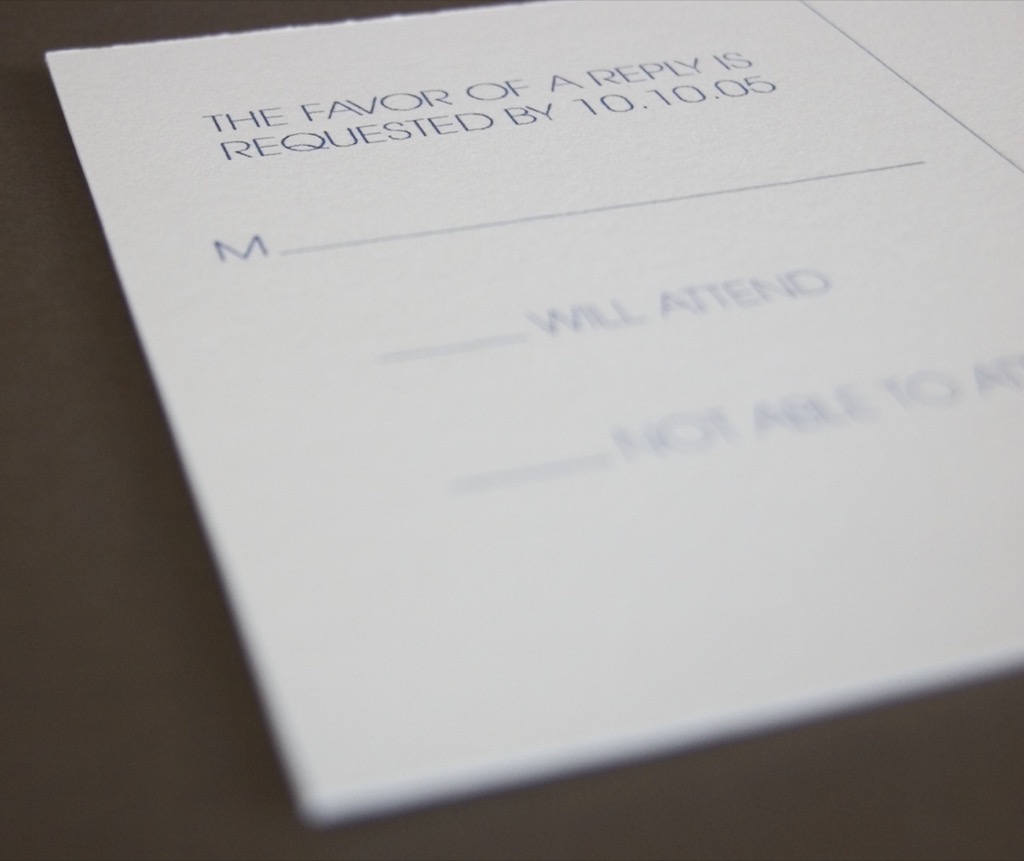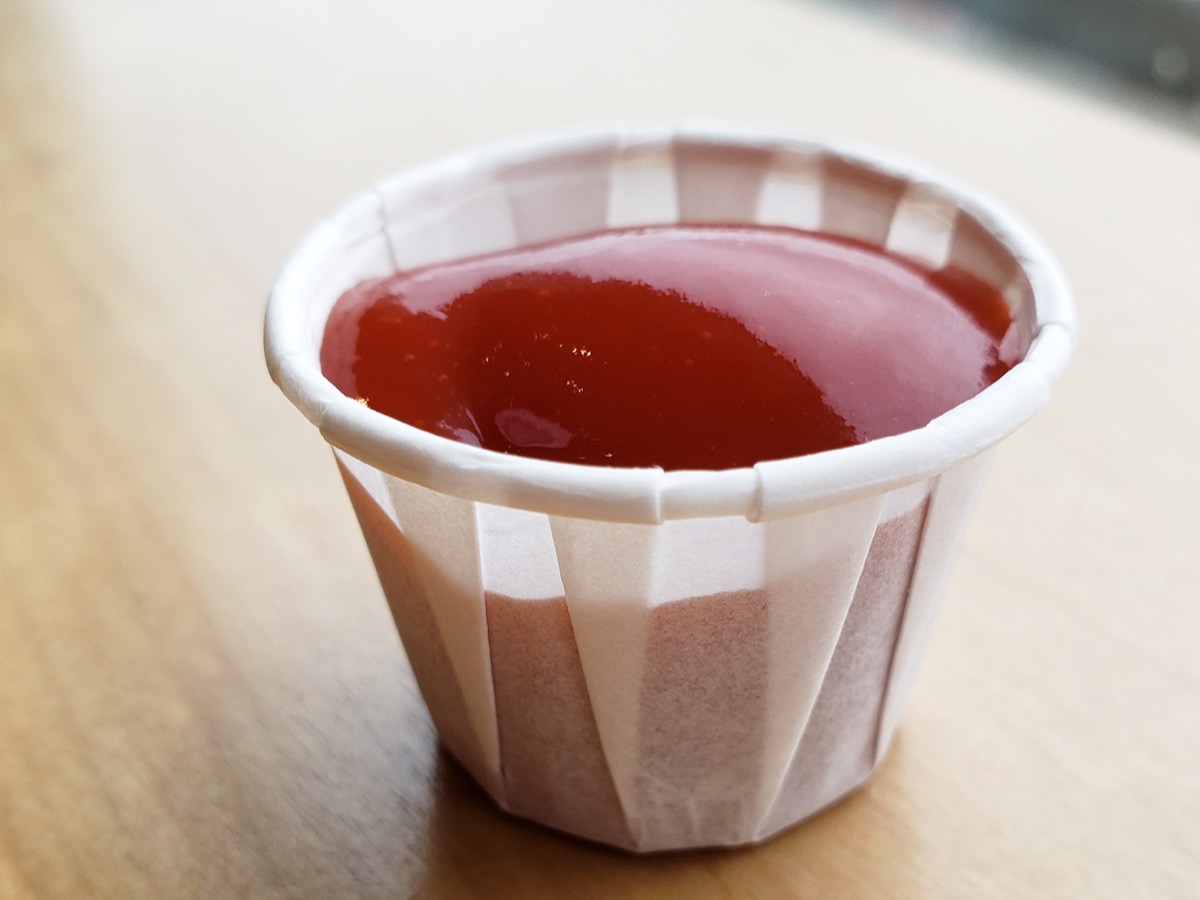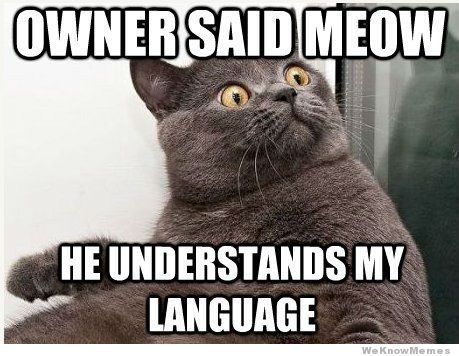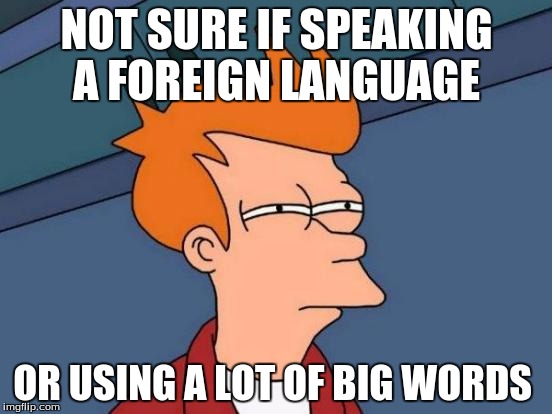While the exact number remains up for debate, many linguists estimate that there are more than a million words in the English language. An even tougher number to pin down is how many of those words we technically have the right to claim as our own. The truth is, many of the words we use on a regular basis are actually borrowed from other languages—French, Japanese, Spanish, and Yiddish, to name a few. And some of these foreign-language words—also known as «loanwords»—are so woven into our lexicons that we don’t even realize they’re actually not of English origins.
In English, we use the word «genre» to describe a work of art characterized by a particular style, like horror, romance, comedy, and so on. The word, however, comes straight to us from the French language. In French, genre literally translates to «gender,» but it also roughly translates to «type,» which explains its context in the English language.
While Americans no doubt love chocolate, the word doesn’t have origins in the English language. Instead, it was translated to English from Spanish via Nahuatl—the language spoken by the people living in central Mexico during the time of the Spanish conquest. In that language, the word chocolātl was first used to describe a «beverage made by heating cocoa with water or milk,» like hot chocolate.
If you like fumbling through embarrassing renditions 0f your favorite songs in front of friends and strangers then you have Japan to thank for the opportunity to do so. «Karaoke» combines the Japanese words kara—meaning «empty»—and okesutura, meaning «orchestra.» The polarizing pastime was a favorite among Japanese businessmen in the ’70s before gaining popularity in the U.S. in the late ’80s.
Patio is a Spanish word that refers to the courtyards within buildings, which were popular features in medieval Spanish architecture. Spelled the same in English, the word is typically used in reference to seating areas homeowners have in their backyards.
The word «klutz»—commonly used in the English language to describe a clumsy person—actually has Yiddish origins. It comes from klots, which translates to «wooden beam.»
The education class many children in the U.S. attend between preschool and first grade is called kindergarten—a German word that literally means «children’s garden.» The concept was created in Germany in 1837 by 19th century educator Friedrich Froebel.
Commonly used to describe someone who starts their own business, this word is lifted from the French term entreprendre, which means «to undertake.» As an entrepreneur, you’re literally undertaking your own enterprise.
Mosquitos may be a pests all over the world, but their name a a Spanish word that translates directly to «little fly» or «little gnat.»
While it’s used to describe those streets that are closed off at one end in suburban neighborhoods across the U.S., in France—where the term originated—cul-de-sac literally means «bottom of the bag.»
You know it’s the thing you do when responding to an invitation, but maybe not that it is actually an acronym for the French phrase, répondez s’il vous plaî, which mean «please reply.»
In English, «vigilante» describes someone who volunteers willingly to fight or suppress crime, often outside the parameters of the law. It entered our vocabulary in the 19th century and come from vigilante—the Spanish term for a «watchman and guard»— and can be traced back to the Latin word vigilare, which means «to keep awake.»
«Sofa,» another word for a «couch» in the English language is originally a Turkish word meaning «raised section of a floor, covered with carpets and cushions.» And the Turkish word sofa comes from the Arabic term suffah meaning «bench of stone or wood.»
Often used to describes feelings of anger, apprehension, and insecurity during ones teenage years, the word «angst» originated as a German word that means «distress, worry, and anxiety.»
The word «diesel,» which describes both a type of fuel and a type of engine, also has German origins—Rudolf Diesel, a German mechanical engineer in the late 1800s and the inventor of the Diesel engine.
Although a staple in most American kitchens, the name for this tomato condiment didn’t actually originate in the U.S. Instead it comes from the Hokkien Chinese word kê-tsiap, which is a sauce made from fermented fish, according to National Geographic.
The full name of this dog breed is Welsh corgi, so it’s no surprise that the name doesn’t have English origins. Instead it combines the Welsh words of cor meaning «dwarf» and ci meaning «dog.»
While cookies are beloved in the states, the word doesn’t derive from the English word «cook.» The word for these delicious treats came to us from the Dutch language—koekjes means «little cakes,» and is derived from koek, which simply means «cake.»
This shortened form of the German word delikatessen—which translates to «ready-to-eat foods»—has origins that trace back to the French word délicatesse, meaning «delicacy.»
We have the Arabic language to thank for the name of this yellow citrus fruit. In fact, the words «lemon» and «lime» come from the Arabic words laymūn and līm, respectively.
The word for that body art on your bicep is the English adaptation of the Polynesian word tatau, which means «mark made on the skin.» Makes sense to us!
The word «mammoth» is both the name a long-extinct animal and a term for anything extremely large in size. It came to us via the Dutch word mammut by way of the Russian term mammot, which means «large, terrible beast.»
In 1870s, Irish farmers faced a crisis that could result in a terrible famine similar to that of the 1840s. In order to prevent this, they formed a group that campaigned against rent increases and evictions landlords were proposing. Charles Boycott, a British army captain, was an agent for an absentee landlord at the time and was ostracized by the community when he tried to evict farmers for not paying rent. As a result, his name became the word we now use to describe that protest strategy.
Used to describe both an era and the style that is reminiscent of that era, renaissance is the French word for «rebirth.» And digging even deeper, its origins are in the Old French word renaistre, which translates to English as «to be born again.»
The word «glitch» describes a «minor malfunction,» usually in terms of electronics. And while its origins are still up for debate, many linguists believe it came from the Yiddish word glitsh—meaning «slippery place» in English.
«Defined as «praise given for achievement,» this word originates from the Greek term kydos, which translates as «fame, renown, and glory.»
«Brunette,» which is used in English to describe someone with brown hair, is directly taken from France. However, in French, brunette is a feminine word for a woman with brown hair. If you were describing a man with brown hair in French, you would use the masculine variation: brunet.
«Souvenir» is another French word—describing something kept as a reminder, it literally means «act of remembering.»
The concept of nothing in reference to an amount of something comes to us from the Arabic word ṣifr, a term that was coined by Mohammed ibn-Musa al-Khowarizmi in the ninth century. It came to us as «zero» from Medieval Latin zephirum via French and Italian.
The word «alcohol» also comes to us from the Arabic language. It was derived from al-kuhl, which in Arabic referred to a powdered antimony that was used as eye paint. So, when the word «alcohol» first entered the English language, it described powders such as «kohl,» not the liquid substance we know today.
In English, «boss» describes a person who holds authority and typically manages a group of people in a professional context. The word was directly lifted from the Dutch term baas, meaning «master,» and was first used as «boss» in the early 1800s by Washington Irving.
«Landscape» can describe many different things in the English language, from scenery to the perspective of a photograph is taken. Regardless of what context its used in, the word itself comes from the Dutch term landschap, which combines the terms land and schap, or «land-ship.»
This delicious breakfast food is also brought to us courtesy of the Dutch. Wafel comes from the Proto-Germanic word wabila, meaning «web» or «honeycomb,» which makes sense when you look at the shape and texture of the next waffle you find yourself chowing down on.
No, we’re not talking about the salad dressing, but an area of farmland used for raising horses or cattle that takes its name from the Mexican Spanish word rancho, which literally translates to «small ranch.»
New York City may be the unofficial bagel capital of the U.S., but the actual name for the doughy roll comes from the Yiddish word beygl.
«Shampoo,» which is both a noun for the hair product and a verb for washing your hair with that product, comes from the Hindi and Urdu languages. It’s from the word cā̃po, which is an imperative of the word cā̃pnā, meaning «to press» or «massage.» As in, you massage shampoo into your hair.

By
Last updated:
March 16, 2023
89 English Words That Come from Other Languages [with Pronunciation and Examples]
You probably already find the number of words in English a little dizzying, but did you know that many of them actually came from other languages? Maybe even from your language?
That means some words will be really easy for you to learn, so you can quickly expand your English vocabulary.
Let’s explore 45 common words that English “took” from other languages.
Contents
- From French
- From German
- From Yiddish
- From Spanish
- From Japanese
- From Native American Languages
- From Chinese
- From Arabic
- From Russian
- From Portuguese
- From Swedish
- From Italian
- From Korean
Download:
This blog post is available as a convenient and portable PDF that you
can take anywhere.
Click here to get a copy. (Download)
From French
In some ways, English, French and German are almost like three siblings who grew up together. Each language influenced the other two in some way, but one of the biggest influences on English was French.
In fact, from the 9th century until the 14th century, a form of French was even the “official” language in the courts of England! During those years, the common (non-royal) people spoke an older form of English, while the kings, queens and members of the court spoke French. And to make it more confusing, most documents were written in Latin.
As you can imagine, there was a lot of mixing between those languages. So let’s look at some interesting English words that still “look French.”
One more note: Be sure to listen to the pronunciations for these originally-French words. Many are probably said differently than you might expect!
1. Art
The word “art” originated from the Latin ars which originally meant “skill” or “craft”. It came to English through Old French.
Example:
She enjoys abstract art.
2. Beef
“Beef” came to English from the Old French word boef. But that’s not the only meat name with French origins! “Mutton,” “veal” and “pork” are all thought to be derived from Old French.
Example:
Cut the beef into slices and serve it with the sauce.
3. Ballet
This is a form of dance that developed in France.
Keep in mind that you don’t pronounce the “t” at the end. Instead, the second syllable should sound like “lay,” with the same vowel sound as the letter “a.”
Example:
My niece and nephew are in ballet class, so I watched their 5-hour ballet performance on Saturday. It was pretty long.
4. Cafe
It is written both with the accent mark (“café”) and without it (“cafe”) in English.
“Cafe” comes from the French word for “coffee,” but it’s also very similar the word for coffee in many other languages.
Example:
I’ve only got about 20 minutes for lunch, so I’ll just stop at a cafe for a quick sandwich.
5. Country
Originally from Latin, the English word “country” likely comes most directly from the Old French word cuntree.
Example:
I prefer to live in a hot country.
6. Croissant
A croissant is a type of pastry or bread that is light and flaky. A similar type of bread in English is a “crescent roll.”
Example:
Tina really loves to make croissants because they taste better than other types of bread.
7. Dance
The word “Dance” likely comes from the Old French verb dancier which means “to dance”.
Example:
He danced her across the floor.
8. Dragon
An awful lot of animal names (mythical and otherwise) can be traced back to French, but let’s face facts: “dragon” is the most fun. Other animals who owe their names to French include griffin, phoenix, dolphin, squirrel and more. You can guess which ones are real.
Example:
A dragon guarded the treasure.
9. Entrepreneur
An “entrepreneur” is a person who starts their own company. Other common forms of the word include “entrepreneurship” (a noun) or “entrepreneurial” (an adjective).
Example:
Elon Musk, the man who started SpaceX and Tesla Motors, is one of the most famous entrepreneurs in the world.
10. Faux pas
This phrase describes making a social mistake. It has several silent letters, including the “x” and the “s.”
If you make a “faux pas”, then the mistake usually isn’t very big and doesn’t hurt anyone physically, but it can make people uncomfortable.
Example:
I committed a pretty big faux pas last night. I kept trying to offer Maria beers, but I completely forgot that she stopped drinking alcohol three years ago!
11. Fruit
The word “fruit” passed through Old French (as fruges) before making its way to English.
Example:
We have a fruit bowl on the table.
12. Genre
In French, this word means “kind” or “style.” In English, it’s used to describe a category of something, especially when talking about entertainment.
You’ll especially hear people using this word to talk about books, movies and music.
Example:
Roy likes many types of music, but his favorite genre is heavy metal.
13. Hors d’oeuvre
These are small bits of food that are served at special events, usually parties. They’re very similar to appetizers, but appetizers are usually served before a larger meal.
Example:
We were invited to Tina and Roy’s engagement party. We expected a big meal, but there were only hors d’oeuvres. That was okay, though, since we weren’t that hungry.
14. Liberty
It means to be free to choose, think and act as you like. While “liberty” is a popular word in the US, it isn’t an original English word. It originated from Latin libertas (“freedom”) before passing through Old French liberté.
Example:
He lost his liberty privileges and, with them, his equilibrium.
15. Lingerie
This is used to describe women’s underwear or sleepwear that is usually sexy or special in some way.
Example:
These days, before some women get married, their friends give them a “lingerie shower.” That’s when the woman’s friends all get together and give her lingerie as a wedding gift.
16. Music
The origins of “music” go back to Greek and Latin, but before hitting the English language, it passed through Old French as musique.
Example:
What type of music are you listening to?
17. People
The Latin word populus transformed into the Anglo-Norman French word poeple, which later became the English word “people.” My, how far we’ve come.
Example:
Around 108 billion people have ever lived on our planet.
18. Renaissance
In French, this means “rebirth,” but in English it is often used to describe the historical period between 1300 and 1600 when art and science developed a lot.
Example:
I don’t know much about art, but I do know that Michelangelo and Raphael were two of the most famous artists from the Renaissance period.
19. Rendezvous
In English, this word is used to describe either a place where people plan to meet, or the action of meeting a person at a specific time.
Example:
We’re in a new city, and I’m sure you all want to explore it a bit. It’s 2:00 now, so let’s rendezvous back here at 6:00. Then we’ll go to dinner.
20. Very
Yes, even a simple word like “very” came through French. It likely originated with the Old French word verai, which meant “true.”
Example:
It’s very likely that he will join us on this trip.
That’s not a comprehensive list and there are still more English words and phrases that come from French.
From German
As I already explained, a lot of German words are also used in English.
21. Delicatessen
A “delicatessen” (abbreviated “deli”) is a shop where you can get sandwiches, coffee and other small foods. This comes from the German word Delikatessen, which means “fine/fancy foods,” but in English it just describes the place where you can buy those foods.
Some of the most famous delis are in New York, including Katz’s Delicatessen.
Example:
Delicatessens used to be more common in New York, but many are going out of business.
22. Fest
A “fest” is any kind of party, celebration or festival. In both English and German, it’s commonly used as a suffix (a word part added to the end of a word), and the most common one is Oktoberfest. Oktoberfest officially happens every year in Munich, Germany, but many other cities have their own Oktoberfests.
Example:
We went to Oktoberfest in Munich, it was crazy. There were so many people, and all of them were drunk!
23. Gesundheit
In German, this word means “health.” Especially in the United States, people often say “Gesundheit!” as a response when someone sneezes (others often say “bless you”).
Example:
When I sneezed, my aunt said “Gesundheit!”
24. Hamburger
A hamburger is a sandwich consisting of fillings—usually a patty of ground meat, typically beef—placed inside a sliced bun. This traditional American cookout food actually comes from the name of the German city, Hamburg.
Example:
They served hot dogs and hamburgers at the cookout.
25. Kindergarten
Translated literally, this word means “children’s garden.” It’s a common type of school in many parts of the world. Children often go to a year or two of kindergarten when they’re 5 years old before they start elementary school.
Example:
Our daughter is going to turn 5 next year, so we’ve been trying to find a good kindergarten for her.
26. Neanderthal
Neanderthals were humans like us, but they were a distinct species called Homo neanderthalensis. The word “Neanderthal” comes from another German place name. Thal used to mean “valley,” though now it’s spelled as Tal. Therefore, Neanderthal refers to the “Neander Valley,” which is where some of the first fossils of Neanderthals were discovered.
It’s now used in English when someone is very old-fashioned and not willing to change.
Example:
They were pushed back by Neanderthal security guards.
27. Nix
This comes from the German word Nichts, meaning “nothing.” So the next time you ask your server to nix the ketchup on your hamburger, you’ve just used two German words and one Chinese word!
Example:
I wanted to get the day off, but my manager nixed it.
28. Poodle
Everyone knows the word “dachshund” comes from German, but they’re not the only German dogs on the block. This canine name originally came from the Low German word puddeln, meaning “splash in water.”
Example:
My friend’s poodle is the best dog I know!
29. Waltz
A “waltz” is a type of formal dance. The word is also used to describe the type of music that plays during those dances, and it can also be used as a verb to describe the action of dancing this dance.
Example:
My friends say that dancing the waltz is easy, but I can’t do it. I’m just not coordinated, and everyone says I have “two left feet.”
30. Rucksack
A rucksack is another name for a backpack. “Ruck” comes from the German word Rücken (back) and sack is another German word which means either “bag” or, as you probably guessed, “sack.”
Example:
Alan is going to travel to Europe this summer, but he’s planning on only taking one rucksack. He’ll have to pack carefully if he wants everything to fit!
For even more words like this, check out this article with 76 other German loanwords.
From Yiddish
You may not have ever heard of Yiddish, but it’s a Germanic language that was common among Jewish people in Eastern Europe. Today it’s mostly spoken in Israel, Eastern Europe and some parts of the United States where Jewish families settled but is an endangered language.
Because of historical immigration, some Yiddish words may be more common in American English than in British English. Also, since it is a Germanic language, many Yiddish words are similar or even the same as German words.
31. Glitch
A “glitch” describes a small problem, but usually it’s a problem that doesn’t make it impossible to finish something.
Example:
I planned to go downtown to meet with Betty, but I ran into a glitch: The bus wasn’t running because it was a holiday. So I took a taxi instead.
32. Klutz
A “klutz” is a person who is very uncoordinated or clumsy. In other words, klutzes often have accidents and break things.
Example:
My cousin Charlotte is a real klutz. Every time she goes into a souvenir shop, she always seems to break two or three things, and then she has to pay for them!
33. Spiel
In Yiddish (and German), this word can mean “play,” but in English it’s used to describe a quick speech or story which has usually been said/told many times. Often a spiel tries to convince you of something.
Example:
My uncle Thomas believes a lot of conspiracy theories. When we ate Thanksgiving dinner, he did his whole spiel about how the government is controlled by lizard people!
34. Schmooze
This is a verb that means to talk with someone in a very friendly way, often to gain some benefit for yourself.
Example:
At the meeting, the professors were schmoozing with the president of the club. They want his club to donate money to the university.
From Spanish
Like French, Spanish is another Latin-based language that has influenced English. A lot of this Spanish influence is especially noticeable in American English, so many of these words could be less common in British English.
35. Guerrilla
In Spanish, this word literally means “little war.” In both Spanish and English it can be used to describe an unofficial group of people fighting the government. In English, it’s most commonly used as an adjective, in phrases like “guerrilla warfare” or “guerrilla marketing.”
Note that in Spanish, the “ll” sound is different than in English. As a result, in English this word sounds basically the same as “gorilla,” the animal.
Example:
The guerrilla fighters took control of the capital of the country, which gave them control of the government.
34. Macho
This word describes a person who is very strong or masculine. It can also be used to describe a person who is arrogant about his manhood. It’s also been used in the name of a professional wrestler and a popular disco song from the 1970s.
Example:
Peter is a real macho guy, but that’s annoying sometimes. He says that “real men don’t cry,” but I think he’s wrong.
35. Patio
In English, “patio” generally describes an area outside a house which often has a table and chairs, but no roof.
Example:
It was very hot today, so we decided to go out to the patio to drink a cold glass of lemonade. There are some trees there, too, so the sun wasn’t as bad.
36. Plaza
A “plaza” describes a public open area in a city, which can sometimes be called a “square.”
“Plaza” is also used in the names of many shopping malls, corporate building areas or other large open areas. If you’re a native Spanish speaker, notice that the pronunciation in English has a vibrated “z” sound, not a soft “s.”
Example:
Victoria needed to buy some Christmas presents for her friends, so she went downtown to the new shopping plaza to check out some of the stores that were recently opened.
37. Piñata
This is a happy word that describes a toy that is filled with candy. At parties, children take turns trying to break it open with a stick so the candy will fall out.
Example:
We had a birthday party for our 3-year-old boy, but we thought he was probably too young for a piñata. We thought all the kids would get hit in the head with the stick.
38. Savvy
It’s how we call a person who makes good judgments. The word “savvy” likely originates from the Spanish word sabe, which means “knows.”
Example:
Many people are no that politically savvy.
39. Siesta
A “siesta” is another name for “nap,” but it’s generally a nap that one takes in the middle of the day, especially after eating or while taking a break from work.
People often take siestas in hot countries because the middle of the day is when the heat is most intense. So it’s a good time to stay inside and sleep!
Example:
Wow, I ate that big plate of spaghetti and now I’m feeling super tired. I think I’ll take a quick siesta before I get back to work.
40. Tobacco
“Tobacco” is a type of plant and its leaves are dried and used for smoking. While the word is likely influenced by native languages, the English word “tobacco” was derived from the Spanish word tabaco.
Example:
I have never smoked tobacco in my life.
41. Vanilla
“Vanilla” is a spice that is used to flavor food like ice cream or can also be used in fragrances. The English word “vanilla” likely comes from the Spanish word vainilla, which itself comes from the Latin word for “pod.”
Example:
Vanilla ice cream is my favorite!
From Japanese
While English and Japanese do not share common roots, the cultures have crossed paths many times throughout the years and ultimately borrowed words from each other.
42. Honcho
The Japanese word 班長 (hanchō) refers to a chief or leader in both Japanese and English. It can also be used as a verb meaning to organize or to supervise a project, for example.
Example:
I was recently asked to honcho the new marketing project.
43. Skosh
You might use the word “skosh” without even noticing where it came from. It’s used to refer to a small amount and comes from either the Japanese word 少し (sukoshi) or the word すこし (sukoshi), both of which mean “a little.”
Example:
Next time just add a skosh of salt to your eggs.
44. Karaoke
You probably know what karaoke is. It’s when you sing along with the tune of a popular song while reading the lyrics from a screen. There are karaoke bars in many countries, including the US and the UK, but it’s most commonly associated with Japan.
Example:
Mitch really likes singing karaoke, even though he doesn’t have an amazing voice. But that doesn’t matter—the important thing is to have fun with friends!
45. Karate
Like karaoke, you probably recognize this word. It describes a popular martial art that originated in Japan. There, the word “karate” means “empty hand,” since you don’t need any special equipment or weapons to do it.
Example:
Lisa has a black belt in karate, so you’d better not try to steal her things.
46. Ninja
This word means “spy” in Japanese, but in English it’s used to describe a person who can move and attack silently, without being seen. People also associate ninjas with fighters who wear masks and all-black clothing, even though that may not be historically true.
In modern use, people who can do something incredibly well are often called “ninjas.” This is especially common in technological fields.
Example:
You should try Karl’s cookies—they’re delicious! Karl is a real baking ninja!
47. Origami
“Origami” is the art of folding small pieces of paper in order to form them into interesting shapes. Some origami can be really detailed and incredible!
Example:
If you want to try origami, it’s very easy to start. You just need some small pieces of paper. But if you want to become an expert, it could take years of practice.
48. Tsunami
This is a gigantic (very large) sea wave that is usually caused by an earthquake.
Unfortunately, the word tsunami has become more well-known ever since the 2004 Southeast Asia tsunami and the 2011 Japan tsunami. Those events killed hundreds of thousands of people.
Example:
Those recent tsunamis were terrible, but at least they made people more aware of the dangers of tsunamis.
From Native American Languages
When Europeans arrived to the Americas, they encountered millions of natives. The native groups had their own languages, and many of those influenced English.
Many of the Native American words were for place names, and others were adapted and changed to make them easier to pronounce in English.
These words are usually more common in American English than in British English.
49. Chocolate
“Chocolate” came to English after passing through Spanish, but originally it was xocolatl in the Nahuatl language of modern-day Mexico.
Example:
If you don’t know what chocolate is, then I feel very sad for you.
50. Moccasin
Depending on who you ask, you will probably hear different ideas about what a moccasin is. But at least everyone will agree that it’s a type of informal shoe.
Example:
I don’t like the cold winter weather in general, but I do enjoy wearing my warm moccasins when I’m inside.
From Chinese
In English, “Chinese” is used to refer to the different dialects of the languages in China and Taiwan, even though “Mandarin” is the actual name of the one with the most speakers.
If you look a bit closer, you’ll find that English has actually taken some pretty cool words from Chinese!
51. Dim sum
“Dim sum” is a style of food that’s common in southern China (specifically in and near Hong Kong).
The word originally meant “touch your heart,” but now it’s just used to describe a meal in a restaurant where the guests have many choices of small dishes of food. Many of the foods are steamed in bamboo baskets, and there are also other dishes like soup and fried bread.
Example:
Tony invited us to eat dim sum and we had a wonderful time! The food was delicious, and the little pieces were actually easy to eat with chopsticks.
52. Gung-ho
In Chinese this phrase means “work together,” but in English it’s used casually to express that you’re excited or enthusiastic about something. We generally use it as an adjective.
Example:
I was really gung-ho to eat dim sum, but when we got to the Chinese restaurant it was closed for a holiday! We were all really disappointed.
53. Kung fu
“Kung fu” is another popular style of martial arts. In kung fu, generally fighters only use their hands and feet, but not weapons.
Example:
I’m tired of bullies beating me up. I’m going to learn kung fu so I can defend myself if they attack me again!
54. Tofu
This is a word that originated from Chinese (as dou fu). But before it was adopted into English, it passed through Japanese and became “tofu.”
In Chinese, dou means “bean” and fu means “rotten” or “sour.” It sounds gross when you put it that way, but it can actually be pretty tasty!
Example:
I know you’re vegetarian, but this restaurant has lots of great options! For many of the dishes you can just substitute the meat with tofu or another vegetarian option.
55. Typhoon
A typhoon is just another name for a hurricane or a cyclone. If it’s in the Pacific Ocean near Asia, it’s called a typhoon.
The word was reinforced by the Chinese word taifeng, which means “big wind.” There were also some possible influences from other languages like Greek, Arabic and Portuguese!
Example:
In 2014 Typhoon Haiyan hit the Philippines and caused a lot of damage. It was one of the biggest typhoons ever recorded.
56. Yin and yang
In Chinese, yin represents feminine, dark and nighttime, while yang represents the opposite: masculine, light and daytime things. In English, these words are used to represent any opposites.
Example:
Mary is the yin to Peter’s yang. They’re complete opposites, but they have a happy marriage. I guess it’s true that “opposites attract”!
57. Ketchup
Ketchup may seem as American as burgers and cookouts, but the word itself may come from the Cantonese word 茄汁 (qié zhī), which means “tomato sauce.”
Example:
Could you please pass me a bottle of ketchup, please?
58. Chin-chin
In English and Chinese, it’s a drinking toast expressing good wishes before drinking. The word stems from the Mandarin word 請 (qǐng), which means “please.”
Thank you for the great night, let’s have the last drink! Chin-chin!
59. Brainwashing
It’s a term used in English to describe the process of manipulating a person’s beliefs, emotions and behaviors. It might not sound Chinese, but there’s a very good explanation for that.
“Brainwashing” is actually a literal translation of the Chinese word 洗腦 (xǐ nǎo). It originated in Chinese during the Korean War, referring to the practice of coercion and mind control.
It took off in the U.S. soon after.
Example:
The prisoners of war were subjected to intense brainwashing.
From Arabic
Though Arabic and English look incredibly different, many English words have their roots in Arabic since it is one of the oldest languages in the world.
60. Admiral
In English, an admiral is a high-ranking naval officer who is responsible for commanding fleets or groups of ships.
“Admiral” comes from أمير (pronounced amyr and sometimes translated as “emir”), which refers to a leader.
Example:
Horatio Nelson was the greatest admiral in the history of the Royal Navy.
61. Alcohol
We all are probably familiar with this word. But did you know that the word “alcohol” is derived from the word الكحل (alkahal), which meant “the kohl,” which originally referred to a powder.
Example:
I’m seriously thinking about cutting down on alcohol in January.
62. Algebra
“Algebra” is a branch of math where you solve equations. “Algebra” comes from الجبر (aljabar), which originally referred to putting together broken parts.
Example:
Algebra was my least favorite subject at school.
63. Average
In math, it’s the mean number from a set of numbers. In English, we also use this word to describe when something is typical or usual. “Average” originally came from عوار (eawar), which referred to damage to goods. Merchant-marine law changed the meaning.
Example:
It was an average experience for me.
64. Lemon
These bright yellow fruits have an interesting history. Coming from the word ليمون (leemoon), it passed through French before making its way to English.
Example:
Eating lemons can boost your immune system.
65. Sheikh
A “sheikh” is a ruler or leader of a group of people in Arab cultures. It’s used in English as a title for rulers in some countries, instead of words like “king” or “president.”
For example, the current leader of Dubai, Mohammed bin Rashid al Maktoum, is a sheikh.
Example:
When meeting sheikhs, many foreign leaders hold hands with them as a sign of respect or friendship.
66. Sofa
“Sofa” likely started as the Arabic word صفّة (sofa) before entering the Turkish language, then the French language, then the English language. That’s quite a journey!
67. Zero
“Zero” comes from the word صفر (sifr), though it passed through Spanish, Italian and French before it entered the English language.
From Russian
Even though Russian and English look and sound very different they are actually both a part of the huge group of languages known as Indo-European.
68. Beluga
It’s a small whale with white teeth living mainly in Arctic waters. The type of sturgeon comes from the Russian word белуга (beluga), while the type of whale comes from белуха (beluhka). Both ultimately trace back to белый (belee), which means “white.”
Example:
The beluga whale is known as the “canary of the sea” because of its unique vocalizations.
69. Babushka
In Russian, this word means “grandmother,” but in English it usually refers to a scarf or head covering that you might imagine an old Russian woman wearing.
So if a girl or woman wears a scarf to keep her head warm, sometimes people jokingly call her a “babushka.”
Example:
I saw an old lady wearing a babushka walking down the street. She was carrying many shopping bags and having trouble walking, so I offered to help her carry her bags.
70. Disinformation
It means to give false information to mislead someone on purpose. “Disinformation” comes from the Russian word дезинформация (dezinformatsiya), which was the name of a KGB propaganda department.
Example:
The government’s disinformation campaign was designed to confuse the public and conceal the truth about the controversial policy.
71. Mammoth
It’s a large, extinct species of elephant that lived during the Ice Age. In English, this word is also used to say when something is huge or gigantic. “Mammoth” comes from the Russian word мамонт (mamont), which likely had Siberian roots.
Example:
The construction project required a mammoth amount of concrete and steel to complete the towering skyscraper.
72. Shaman
A “shaman” is a mystical expert who can function as a healer. This word for a tribal priest comes from the Russian word шаман (shaman), which likely comes from the Evenki language of Siberia.
Example:
The tribal shaman performed a sacred ritual to connect with the spirits of nature.
From Portuguese
With two languages that take so much of their vocabulary from Latin, you can expect lots of overlap and similarities. Here are the words we have just straight borrowed!
73. Bossa nova
There are many Portuguese loanwords in English. Bossa nova, which means “new wave” in Brazilian Portuguese, describes a kind of relaxing music.
Example:
You may think that you don’t know any bossa nova songs, but you almost certainly have heard a version of the “The Girl From Ipanema.” It’s a great bossa nova song, but it’s also the stereotypical example of “elevator music.”
74. Cashew
It’s a nut in the shape of a kidney that is rich in oil and proteins. “Cashew” is derived from the Portuguese word cajú, which likely came from the now-extinct Tupi language.
Example:
Try eating a few cashews as a snack, it’s a healthier option.
75. Cobra
Cobra is a poisonous snake from Africa and southern Asia. The word “cobra” is a shortening of cobra de capello, a Portuguese phrase meaning “snake with hood.”
Example:
At the zoo, we saw a black cobra.
76. Flamingo
While some may claim “flamingo” has Spanish origins, there’s also an argument that it may have come from Portuguese. The bright pink birds have not yet weighed in on the conflict.
Example:
A beautiful flamingo was standing gracefully on one leg in the pond at the zoo.
From Swedish
While the writing and pronunciation of a word may sound quite different in Swedish than in English, there is actually a lot more commonalities than you might expect between these two languages that share Germanic roots.
77. Moped
“Moped” (pronounced with two syllables: mo-ped) is a combination of the Swedish words “motor” and “pedaler.” Those words are nearly the same as their English equivalents “motor” and “pedals.”
It’s basically a bicycle with a motor. Many people call scooters or small motorcycles “mopeds,” but that’s not technically correct.
Example:
When I got my driver’s license, I really wanted a car. But cars are too expensive, so I bought a moped from my friend Ronnie instead.
From Italian
Like many of the other languages on this list, Italy and English share Germanic roots so many words sound similar, but others are just borrowed, like these.
78. Allegro
“Allegro” in music means to be performed at a brisk speed. In Italian, allegro means “cheerful.” Most other musical terms also came from Italian.
Example:
The last piece of the composition was in allegro form.
79. Alto
In English, “alto” often refers to a female singer with a lower voice, though the word actually comes from the Italian word alto, which means “high.”
Example:
Amy Winehouse is one of the best alto singers of all time.
80. Apartment
In English, an apartment is a set of rooms on one floor of a building. “Apartment” likely comes from the Italian word appartamento (though it also passed through French before entering the English language).
Example:
He lives in an apartment on the third floor.
81. Broccoli
It’s a very popular green vegetable. Did you know that the word “broccoli” comes from the Italian word broccoli, which is the plural of broccolo.
Example:
My mom made me eat steamed broccoli with every meal I had for lunch.
82. Cartoon
In English it means a simple drawing in a somewhat humorous style. It’s also an animated film for kids. “Cartoon” likely comes from the Italian word cartone, which were full-scale drawings used to prepare for paintings or frescoes.
Example:
We watched the Pocahontas cartoon on TV last night.
83. Cauliflower
It’s a white vegetable and you can actually make a nice grilled cauliflower steak! “Cauliflower” comes from Italian word cavolfiore, which literally means “flowering cabbage.”
Example:
I tried roasting cauliflower for dinner yesterday and it was delicious.
84. Cello
It’s an instrument in the violin family. “Cello” comes from the Italian word violoncello, which is the diminutive of violone, a type of double bass.
Example:
Have you done an hour of cello practice yet?
85. Paparazzi
“Paparazzi” is actually the plural form of the Italian word paparazzo. It’s used in English to describe a photographer or a group of photographers who take pictures of celebrities. Then they sell the photos to magazines or newspapers.
They’re not a very popular profession, as they take away celebrities’ privacy, but they were the subject of a popular song a few years ago.
Example:
When Princess Diana died in 1999, many people believed that the paparazzi were responsible for her death. Those photographers were constantly following her everywhere.
86. Piano
We are familiar with this large keyboard instrument. Did you know that “Piano” is a shortening of the Italian word pianoforte?
Example:
I learned to play piano in a music school near my house.
87. Soprano
“Soprano” is the highest singing voice and has the same meaning between languages. The word comes directly from the Italian soprano.
Example:
He composed this piece specifically for sopranos.
88. Violin
The violin is a stringed musical instrument that has four strings and is played with a bow. The word “violin” came to English from the Italian word violino, which is a diminutive of viola (a slightly larger stringed instrument).
Example:
The sound of the violin reminds me of my childhood.
From Korean
Just like K-Pop, the Korean language has had an influence on English.
89. Taekwondo
For our final word, we’ll look at another martial arts term. In Korean, taekwondo means “kick fist art” (pretty cool, right?!) and in English it’s used to describe the popular martial art.
Example:
After writing this article, I now want to learn a martial art. I’d like to learn taekwondo, but I want to learn how to use swords and other weapons, so it might not be the best option for me.
Wow! That was a lot of words, but I’m sure that you’ll have no trouble learning them. In fact, you probably already recognized some of them.
You don’t have to memorize this list! In fact, it’s always better to learn new words in context by hearing, seeing and reading them used naturally.
For example, to practice these and other words, consider a resource like FluentU. This program uses native-level English video content (chock-full of all sorts of borrowed words) to teach you new vocabulary while improving your understanding of the culture.
Look for words you recognize in English content and media to discover even more easy vocabulary words you may already know.
Until the next time we rendezvous, I hope you’ll stay gung-ho for learning new English vocabulary! Adios, amigos!
Download:
This blog post is available as a convenient and portable PDF that you
can take anywhere.
Click here to get a copy. (Download)
English is a more varied (and delicious) melting pot than you think …
English—is one of the most incredible, flavorfully-complex melting pots of linguistic ingredients from other countries that’s been left to simmer for (in some cases) centuries. These linguistic ingredients are called loanwords that have been borrowed and incorporated into English. The loanwords are oftentimes so common now, the foreign flavor has been completely lost on speakers.
What usually happens is that English speakers find a word in another language to describe something they don’t yet have a word for. So they “borrow” that word. Forever. That said, loanwords fall into two categories: popular loanwords and learned loanwords. Learned loanwords tend to come from scholarly or specialized fields, like medicine or law. It’s usually easier to see what language these words came from. English, for example, draws from Latin for a lot of medical and legal terms.
It’s not always that cut and dried, though. Sometimes it’s harder to see the line between popular and learned loanwords. The word ballet, for example, comes from French, and the terms for the different positions and steps in ballet have retained their original French names. In this case, ballet is a popular loanword. Most English speakers recognize the word as referring to a type of dance. However, the specialized terms in ballet could also be considered learned loanwords because they’re familiar to dancers and choreographers (who are skilled professionals), but largely unknown to people outside the field.
Loanwords make up 80% of English
What this means is that there is no such thing as pure English. English is a delectable, slow-cooked language of languages. As lexicographer Kory Stamper explains, “English has been borrowing words from other languages since its infancy.” As many as 350 other languages are represented and their linguistic contributions actually make up about 80% of English!
Ranking from most influential to least, English is composed of words from: Latin, French, German, Italian, Spanish, Dutch, Scandinavian, Japanese, Arabic, Portuguese, Sanskrit, Russian, Maori, Hindi, Hebrew, Persian, Malay, Urdu, Irish, Afrikaans, Yiddish, Chinese, Turkish, Norwegian, Zulu, and Swahili. And, that’s not even 10% of the 350 languages in the English melting pot.
Duolingo Discussions
Taking a less charitable tack to describe the multilingual aspect of English, the writer James Nicoll said, “English doesn’t borrow from other languages. English follows other languages down dark alleys, knocks them over and goes through their pockets for loose grammar.” That’s certainly a grimmer view, but it’s a metaphor that when looking at certain periods of the history of English, especially during episodes of colonization by English-speakers around the world, rings true.
War is actually a way a lot of loanwords have come into English. Viking invasions of England during the Old English period brought Old Norse words like war and ugly. In 1066, the Normans (basically the French), led by William the Conqueror, invaded and took over the British Isles. That made French the language of the English court for hundreds of years. As many as 10,000 loanwords resulted from that period of English history. Interestingly, a lot of war-related words are loanwords.
Looking at the sheer multilingual complexity of English gives great insight into how richly flavored and inclusive the language really is. We’re sharing just a dash of some of the international linguistic ingredients that make English so special. Just know that the true recipe for English would fill countless volumes, and what we’ve got here is a pretty flavorless oversimplification by comparison!
Borrowing & loaning—like money?
Before we divulge some of the secret global ingredients of English, though, what exactly does borrowing and loaning mean when it comes to languages? These terms make it seem like a word is taken from one language by another for only a brief time and then returned to the lender (with interest?).
Obviously, this isn’t what happens. Using banking terminology may not be the best way to describe the exchange; influencing is probably a better way to conceptualize it. Nevertheless, linguists have been employing words like borrow and loan as metaphors to describe what amounts to be a very complicated and abstract process of exchanging words across cultures.
How does loaning words work?
Borrowing and lending of words happens because of cultural contact between two communities that speak different languages. Often, the dominant culture (or the culture perceived to have more prestige) lends more words than it borrows, so the process of exchange is usually asymmetrical.
A lot of the words that end up being loaned are part of the material culture of the dominant group. Food, plants, animals, and tools migrate with the groups that use them, and, of course, so do the words that describe those things. So, when other cultures come into contact with those new people and their objects and words, it’s no surprise that physical and linguistic exchanges take place. Because those objects already have names, the borrowing culture tends to adopt those names instead of inventing their own words.
The new loanwords that the receiving language incorporates into its lexicon usually start off sounding foreign and might only be used in certain pockets of the community until they gradually spread to more speakers over time. Pronunciation differences happen too, as the foreign word is phonologically reshaped so that it’s easier to say in the language that borrowed it through a process called naturalization or assimilation.
Imgflip
If a loanword is spoken by a large majority of people on a regular basis and its meaning no longer needs to be explained, then the word has been conventionalized. Loanwords can retain vestiges of their former selves (they can still be perceived as foreign in some way), or they can completely melt into the new language. Once the word no longer seems foreign, it is, in fact, a loanword.
WATCH: A Spanish Couple Explains How Tapas Are Different In Spain
The yummy English melting pot (fast food version)
Popular loanwords are everyday words. You might not even realize that some of them came from another language. Most popular loanwords are the result of cultural contact. Many of them describe food, the arts, and entertainment. You probably know sushi comes from Japanese, and taco comes from Spanish, by way of Mexico. But some other food-related loanwords you might have forgotten are pizza from Italian, lemon from Arabic, and tart from French (the French spell it tarte).
There are so many ways to showcase the global ingredients of English, but to really do it justice would take as many years as it took English to get to the rich stew it is now. So, the table below is our “fast food” version of the melting pot. It’s a super-simplified ingredient list with a smattering of words in English that have been borrowed from the different languages we listed above.
Keep in mind that because of this presentation format, we’re not able to tell the intricate stories of how and when these words were introduced into the English lexicon. That involves slow-cooking that we just don’t have time for! But, at the end, we list some great suggestions for where to find a fuller recipe.
(Following the order of most-to-least contributing languages):
| Rank | Language | Examples |
| 1 | Latin | agriculture, language, justice, science, forum, circus, opium, dominatrix, religion, apostle, city, master, paper |
| 2 | French | art, dance, jewel, painting, ballet, government, salon, brigade, infantry, grenade, quiche, beef, salmon |
| 2 | Greek | phobia, academy, siren, lexicon, muse, odyssey, democracy, psyche, atlas, platonic, biology, comedy, tragedy, history, data |
| 3 | German | blitz, strudel, kindergarten, flak, schadenfreude, schnitzel, zeitgeist, poodle, noodle, pretzel, sauerkraut, lager, zeppelin, delicatessen |
| 4 | Italian | opera, soprano, piano, broccoli, fresco, spaghetti, prima donna, parmesan, pesto, viola, pizza, cappuccino, latte |
| 5 | Spanish | canyon, tornado, tortilla, barricade, guitar, alligator, burrito, coyote, junta |
| 6 | Dutch | buoy, cruise, dock, avast, freight, dyke, yacht, easel, landscape, sketch, booze, coleslaw, cookie, gin |
| 7 | Scandinavian | smorgasbord, ski, fjord, saga, sauna, maelstrom, slalom |
| 8 | Japanese | karaoke, samurai, kimono, sushi, tsunami, kamikaze, geisha, judo, jujitsu, soy |
| 9 | Arabic | alcohol, bedouin, harem, lute, algebra, zero, zenith, giraffe, gazelle, sultan, caravan, mosque |
| 10 | Portuguese | albino, dodo, emu, fetish, tempura |
| 11 | Sanskrit | avatar, karma, mahatma, swastika, yoga |
| 12 | Russian | borscht, czar/tsar, icon, vodka, glasnost (a term from the Soviet Union for “open government”) |
| 13 | Maori | kiwi, mana, moa, waka (common Maori words used in New Zealand English) |
| 14 | Hindi | bandanna, bangle, bungalow, juggernaut, jungle, loot, pajamas, punch (drink), shampoo |
| 15 | Hebrew | sapphire, babble, brouhaha, maven, abacus, behemoth, cherub, jubilee, sabbatical, sabbath, amen |
| 16 | Persian | chess, checkmate, check |
| 17 | Malay | ketchup, amok |
| 18 | Urdu | chintz, bungalow, cheroot, cot, many overlaps with Hindi |
| 19 | Irish | boycott, brogues, clock, dig (slang), hooligan |
| 20 | Afrikaans | apartheid, commando, trek, aardvark, meerkat, wildebeest |
| 21 | Yiddish | Chanukkah (Hanukkah), chutzpah, kosher, lox, pastrami, schlep, klutz, oy vey, schmuck |
| 22 | Chinese | dim sum, chow mein, tea, kowtow, tai chi, kung fu |
| 23 | Turkish | baklava, coffee, kiosk, ottoman |
| 24 | Norwegian | berserk, gun, ransack, slaughter, hell, husband, skill, bug, reindeer, dirt |
| 25 | African origins |
banana, bongo, banjo, cola, jazz, chimpanzee, goober, gumbo, impala, jumbo, mamba, zebra, zombie |
As you’d imagine, learning about English’s loanwords from other languages is linked with the history of the English language itself. Because of its status as a global lingua franca, English is now much more of a lender than a borrower, but the ways in which English has contributed to other languages around the world is a recipe for another day. Though at a decreasing rate, English continues to borrow words in the 21st-century. Popular recent loanwords include Sudoku (the Japanese number puzzle appearing in the daily paper), wiki (a Hawaiian word describing a user-controlled website, i.e., Wikipedia), and latte (that Italian coffee drink with frothy milk that you need every morning so you can see straight).
If you want to explore these and many other global linguistic ingredients according to roughly when they were added to the melting pot (and what condition the world ‘kitchen’ was in, so to speak), check out Philip Durkin’s detailed analysis, Borrowed Words: A History of Loanwords in English. Durkin is the Deputy Chief Editor of the Oxford English Dictionary and his exploration describes the intricacies of loanwords in terms of the historical and linguistic landscape of English from its earliest stages to the present day. In a Slate article summarizing his findings, Durkin includes a fascinating timeline of all the lending-languages that have influenced English over the centuries. You can click across to view the different periods of English and the proportions of each linguistic ingredient added during that time.
For another accessible summary of major periods of borrowing in English, take a look at Rice University’s outline on loanwords.
And, the next time you encounter someone who claims English is pure and wants to keep it that way, tell them they have absolutely no idea what they’re talking about. In fact, now you have all the ingredients to back up your observation of how “tasteless” their statement is!
Also, if you want to see how English has influenced some other languages … like French … read through this piece: France And The Battle Of Mots De Prêt (Loanwords)
From Wikipedia, the free encyclopedia
According to surveys,[1][2] the percentage of modern English words derived from each language group are as follows:
| Latin | ≈29% |
| French | ≈29% |
| Germanic | ≈26% |
| Greek | ≈5% |
| Others | ≈10% |
The following are lists of words in the English language that are known as «loanwords» or «borrowings,» which are derived from other languages.
For Old English-derived words, see List of English words of Old English origin.
- English words of African origin
- List of English words of Afrikaans origin
- List of South African English regionalisms
- List of South African slang words
- List of English words from indigenous languages of the Americas
- List of English words of Arabic origin
- List of Arabic star names
- List of English words of Australian Aboriginal origin
- List of English words of Brittonic origin
- Lists of English words of Celtic origin
- List of English words of Chinese origin
- List of English words of Czech origin
- List of English words of Dravidian origin (Kannada, Malayalam, Tamil, Telugu)
- List of English words of Dutch origin
- List of English words of Afrikaans origin
- List of South African slang words
- List of place names of Dutch origin
- Australian places with Dutch names
- List of English words of Etruscan origin
- List of English words of Finnish origin
- List of English words of French origin
- Glossary of ballet, mostly French words
- List of French expressions in English
- List of English words with dual French and Anglo-Saxon variations
- List of pseudo-French words adapted to English
- List of English Latinates of Germanic origin
- List of English words of Gaulish origin
- List of German expressions in English
- List of pseudo-German words adapted to English
- English words of Greek origin (a discussion rather than a list)
- List of Greek morphemes used in English
- List of English words of Hawaiian origin
- List of English words of Hebrew origin
- List of English words of Hindi or Urdu origin
- List of English words of Hungarian origin
- List of English words of Indian origin
- List of English words of Indonesian origin, including from Javanese, Malay (Sumatran) Sundanese, Papuan (West Papua), Balinese, Dayak and other local languages in Indonesia
- List of English words of Irish origin
- List of Irish words used in the English language
- List of English words of Italian origin
- List of Italian musical terms used in English
- List of English words of Japanese origin
- List of English words of Korean origin
- List of Latin words with English derivatives
- List of English words of Malay origin
- List of English words of Māori origin
- List of English words of Niger-Congo origin
- List of English words of Old Norse origin
- List of English words of Persian origin
- List of English words of Philippine origin
- List of English words of Polish origin
- List of English words of Polynesian origin
- List of English words of Portuguese origin
- List of English words of Romani origin
- List of English words of Romanian origin
- List of English words of Russian origin
- List of English words of Sami origin
- List of English words of Sanskrit origin
- List of English words of Scandinavian origin (incl. Danish, Norwegian)
- List of English words of Scots origin
- List of English words of Scottish Gaelic origin
- List of English words of Semitic origin
- List of English words of Spanish origin
- List of English words of Swedish origin
- List of English words of Turkic origin
- List of English words of Ukrainian origin
- List of English words of Welsh origin
- List of English words of Yiddish origin
- List of English words of Zulu origin
See also[edit]
- Anglicisation
- English terms with diacritical marks
- Inkhorn term
- Linguistic purism in English
- List of Germanic and Latinate equivalents in English
- List of Greek and Latin roots in English
- List of proposed etymologies of OK
- List of Latin legal terms
References[edit]
- ^ Finkenstaedt, Thomas; Dieter Wolff (1973). Ordered profusion; studies in dictionaries and the English lexicon. C. Winter. ISBN 3-533-02253-6.
- ^ Joseph M. Williams (1986) [1975]. Origins of the English Language. A social and linguistic history. Free Press. ISBN 0029344700.[page needed]
External links[edit]
- Ancient Egyptian Loan-Words in English
- List of etymologies of English words
The foreign words are the words which are adopted from the foreign languages. There are a lot of words and phrases taken from many other languages. The following table includes 60 most common foreign words and their meanings. The foreign words and phrases listed here are taken from Latin and French languages.






































